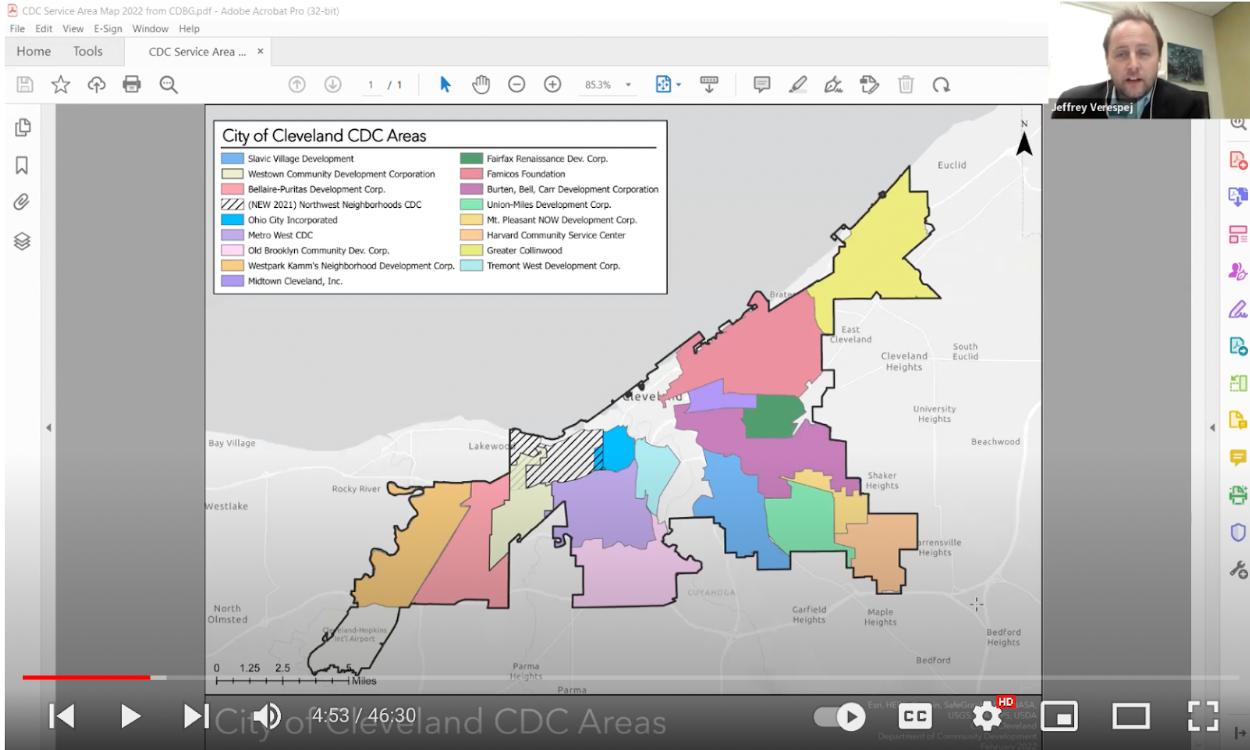Mission: Health Equity Challenge Series - Challenge #3 Reinforces Importance of Doing Research With Community Organizations
Many people have preconceived notions about research. From the people who are considering going into research careers to patients turned prospective research participants thinking about participating in research studies. Some benefit from being a part of research in academia while others navigate the topic in different ways.
Community organizations serve communities, oftentimes underserved and marginalized, that research and researchers, now more than ever, need and seek to include in studies. Motivated by advancement of health equity, the urgency behind building strong community connections and relationships to effect efficient, inclusive partnerships and recruitment continues to heighten.
Gulnar Feerasta, Senior Director of The LGBT Community Center of Greater Cleveland, Kristen Mikelbank, Sr. Manager of Research and Program Evaluation at the Greater Cleveland Foodbank, and Jeffrey Verespej, Chief of Staff and Operations at Cleveland Neighborhood Progress served as expert voices regarding their organizations’ experiences with research.
“They were two different worlds that couldn’t talk to each other,” Verespej said in response to a question about his experience with research–comparing his research involvement in academia with that as an Executive Director of a community development corporation.
Verespej helped lead the nation’s first community health needs assessment, delivered through a community development corporation (Old Brooklyn Community Development Corporation), in collaboration with MetroHealth. “This wasn’t research done to the community. It was research done on behalf of and by the community and it was a very powerful process,” Verespej explained.
“We did the research. [...] We’re already a trusted partner,” Verespej said. “We embedded the research into existing networks instead of trying to bring the network [to the research/researcher],” Verespej mentioned. He added, “Support the people that are already there.”
The LGBT Community Center of Greater Cleveland participated in research, but did not always have the capacity to ensure that they held research partners accountable in terms of how research was done and dissemination. Feerasta emphasized that a framework is needed to ensure that research done with community partners, like TRANSlate, aligns with your organization’s core values. In June 2022, Feerasta was interviewed in the CTSC’s READI News for a community organization spotlight detailing many of the issues she shared during this talk.
“In order for anything to move forward [...] [the question is], ‘Where’s the data?’ not recognizing how exclusionary that perspective is and how elitist that perspective is,” exclaimed Feerasta.
Our community organization partners wanted to know how much flexibility or openness researchers have to have community help ideate their problems into research solutions. Jacqueline Dolata, MBA, Manager of the Center for Reducing Health Disparities, explained that little can be done after a grant has been awarded and emphasized early engagement of community partners when research questions are being ideated and grants are being written so that community priorities can be addressed.
Key Takeaways
- Gain community buy-in upfront
- Budget for community partners/engagement (i.e., paying community members for their time and expertise–lived experience) in your grant
- Ensure that research is led and done by people who are of the community (leveraging the baseline understanding of lived experience)
- Be open (as researchers) to be educated so that interactions can be better informed (i.e., from a place a cultural humility)
- Get comfortable with being uncomfortable
If you’d like to do research with a community organization, generally speaking, reach out to that organization. Watch the talk on the CTSC YouTube channel and sign up for future talks on our website.


